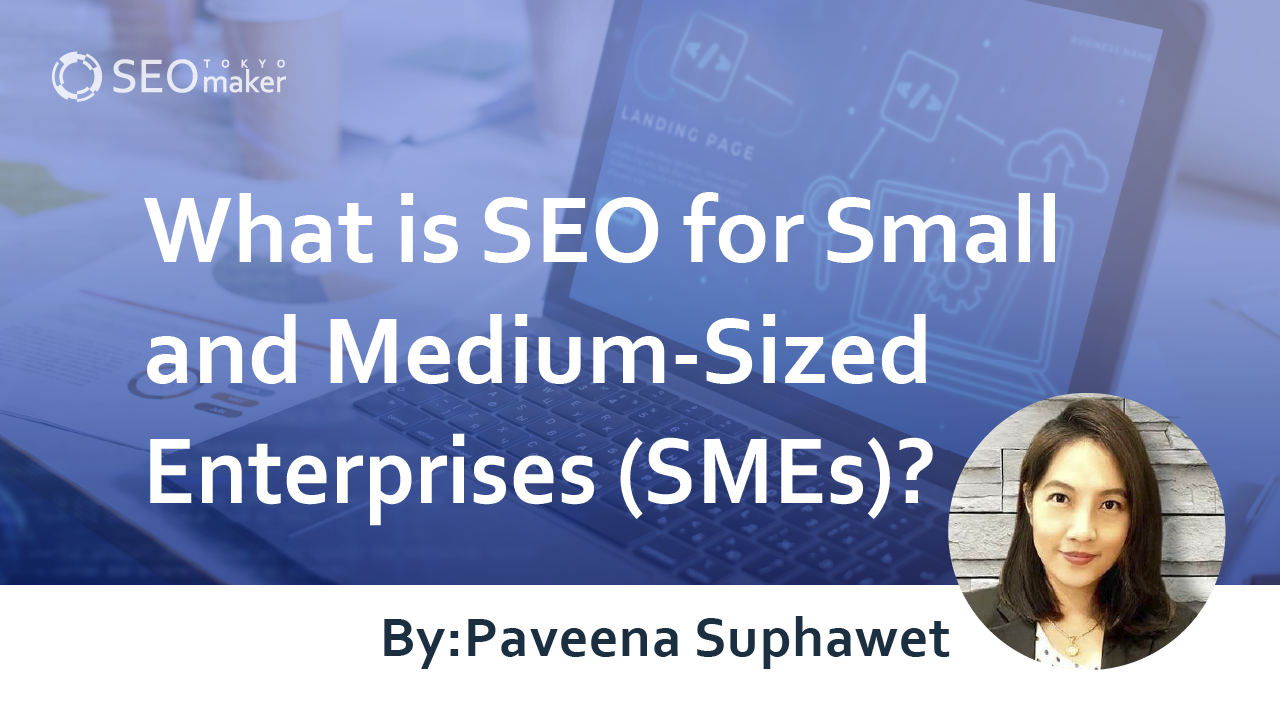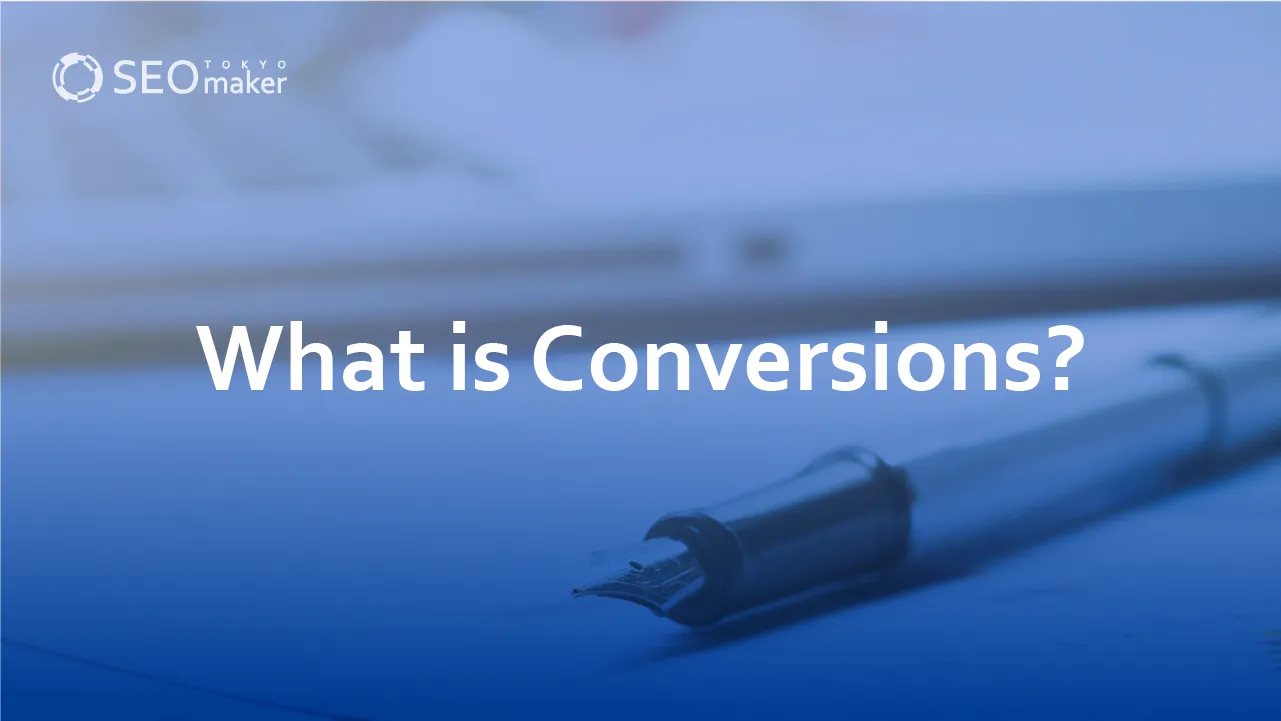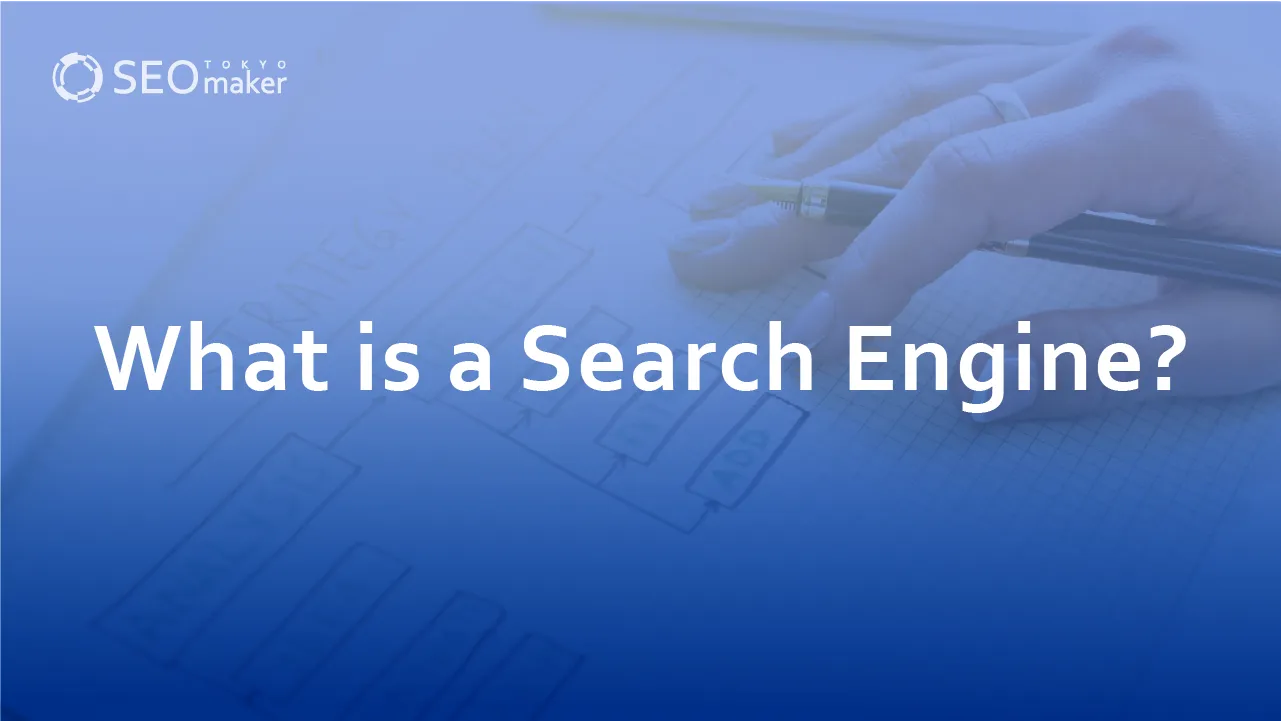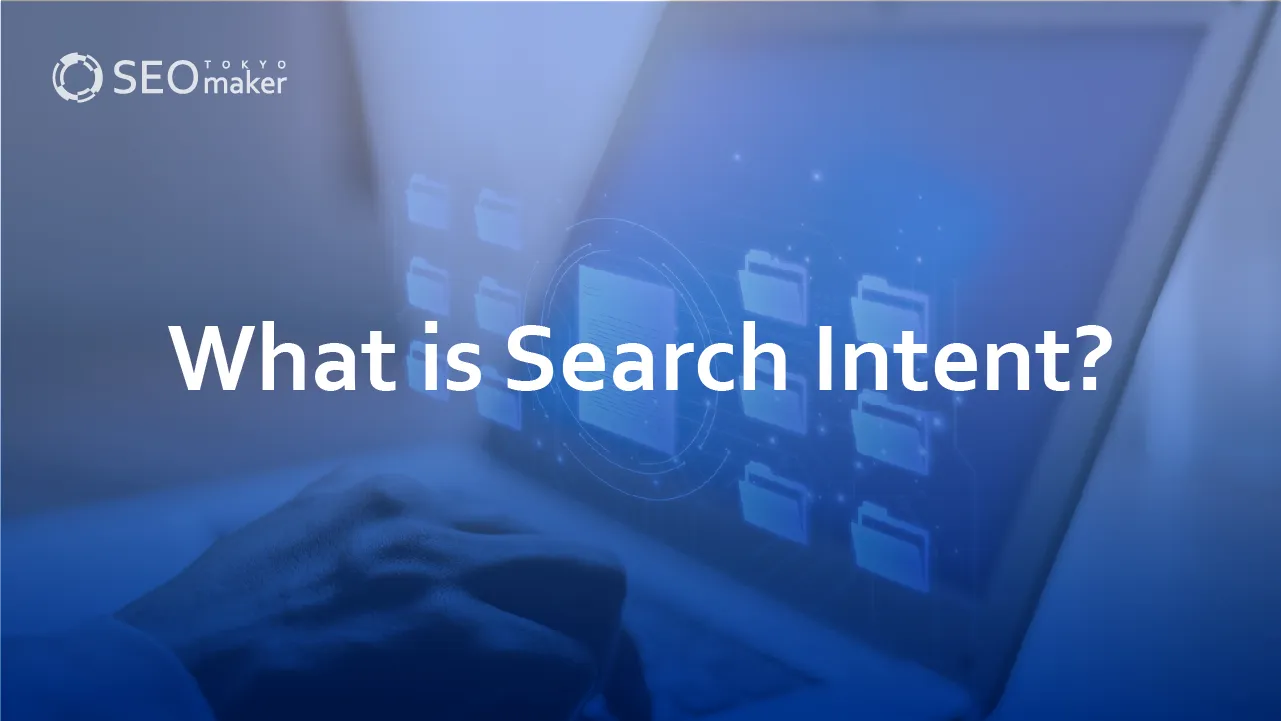What is SEO for Small and Medium-Sized Enterprises (SMEs)? : How to Increase Web Traffic
contents

For profit-seeking companies, customer acquisition is crucial for offering products and services. Among the means to attract customers, various promotional activities, including advertising, play a significant role.
In today’s society, web-based promotion is indispensable. Particularly, SEO (Search Engine Optimization) can deliver high cost-effectiveness in attracting customers.
This article discusses SEO strategies for small and medium-sized enterprises (SMEs), explaining the benefits of SEO for companies and how different types of websites should approach SEO. Additionally, Tokyo SEO Maker, an SEO specialist media, has clearly summarized the specifics of implementing SEO strategies and tips.
What is SEO for SMEs?
SMEs need to attract customers to increase sales of their products and services, and one method to achieve this is through SEO.
The benefit of SEO is that it can increase the visibility and access to a company’s or product’s website by implementing specific measures.
What is SEO in the first place?
Essentially, SEO aims to rank a company’s website high in search engine results. The primary focus is often on Google, the most widely used search engine. For more details on SEO, please refer to the separate article ‘What is SEO?”.
Why Small and Medium-Sized Enterprises Should Implement SEO
Small and medium-sized enterprises can increase their website traffic through SEO measures. Typically, the purpose of a company operating a website is to pursue profit. The specific benefits of a company operating a website include
Reasons for SMEs to Implement SEO
- Increasing awareness of their products or services
- Generating advertising revenue from their site
- Sales of products or services
- Enhancing the company’s branding
Increasing Product or Service Awareness
By creating a brand site for products or services, companies can raise awareness of their offerings among search users.
Moreover, by implementing SEO strategies, traffic to the product site increases, spreading detailed information about the products to a broader audience. As product awareness expands, the potential customer base grows, leading to increased sales.
Generating Website Advertising Revenue
Operating owned media allows for earning advertising revenue based on site traffic by incorporating ad spaces within the site.
Owned media, in the narrow sense, refers to media that disseminate information on a specific theme. Depending on the theme, significant traffic can be expected, and its high compatibility with SEO and web advertising business is a notable feature.
Selling Your Products or Services
By setting up an EC (Electronic Commerce) site with payment functionality, it can be operated as an online shop, leading to the expansion of channels for selling your products or services.
For instance, if your company is in the distribution business, you can establish two sales channels: a physical store and an EC site. Alternatively, if you are a manufacturer that sells products, you can sell your products online in addition to traditional distribution channels.
In either case, advancing SEO strategies will increase traffic to the EC site, creating more opportunities for potential customers to encounter your products.
Branding Your Company
Operating a website as a small or medium-sized enterprise helps to expand awareness of your company and its products, also serving as part of branding efforts. More details on branding strategies using websites are discussed in the following article:
Explaining the key points and steps to successful branding with owned media
Types of Websites Operated by Small and Medium-Sized Enterprises
Websites can be classified into various types based on their operational purpose and characteristics. For companies, typical types of websites include;
- Corporate websites
- Product websites
- Owned media
- EC sites
- Portal sites (comprehensive/search-based)
- SNS (Social Networking Service)
Among these, operating large-scale sites like portal sites and SNS requires substantial budgets, thus often limiting such operations to major corporations. However, the following three types of media are manageable for small and medium-sized enterprises, each with its effective SEO strategy
- SEO Strategies for Small and Medium-Sized Business Websites
- SEO strategies for product sites
- SEO strategies for owned media
SEO Strategies for Small and Medium-Sized Business Websites
A small and medium-sized business website, also known as a corporate website, introduces the fundamental information about the company. Typically, such a website includes
- Home page
- Products/Services page
- Press releases/Announcements page
- About Us page
- Careers page
- Contact Us page
For SEO strategies on a corporate website, consider techniques like
- Posting executive profiles
- Registering Google Business Profile
- Mutual linking with product sites
- Mutual linking with related businesses
- Negotiating for coverage and backlink acquisition
SEO Strategies for Product Sites
A product or service site, often referred to as a brand site, hosts detailed information about the company’s offerings.
These sites primarily focus on key products or services, aiming to enhance the product image, often reflected in the site’s design that matches the product’s branding.
A product site may include the following elements.
- Home page
- Product/Service details page
- Campaigns page
- Column articles page
SEO strategies for product sites might involve the following methods.
- Creating column articles utilizing industry knowledge
- Planning campaigns integrated with social media
- Mutual linking with sister product sites
- Mutual linking with related companies
- Negotiating for coverage and backlink acquisition
SEO Strategies for Owned Media
Owned media broadly refers to any platform owned by the company. More specifically, it can mean an information site separate from the corporate site, focusing on particular themes.
Such sites require thorough examination of themes and target audiences to ensure the content is in demand, guiding the site structure and keyword selection based on user needs.
For targeting and keyword selection in owned media, more details are provided in the linked article.
>>What are the specific steps for writing on owned media? Introducing key points for writing
SEO for owned media involves;
- Pursuing search intent and creating articles accordingly
- Covering related information comprehensively
- Soliciting interviews for articles
- Negotiating for backlinks to product feature articles
SEO Strategy Process for Small and Medium Enterprises
Small and medium enterprises (SMEs) operate various types of websites, with the following being a typical SEO strategy flow for a corporate website.
1. Set keywords for the corporate site
2. Create a corporate information page
3. Edit the information on the page
4. Register office information on Google Business Profile
- Keyword Setting for the Company Website
Initially, determine the keywords for the corporate site, imagining what search users intend and what keywords they might use related to the business. For example, if the company manufactures instant noodles, potential keywords might include the followings.
-Cup noodles
-Instant ramen
-(product or brand names)
With these keywords in mind, plan the site structure, which typically includes
-
- Home page
- Products/Services page
- Press releases/Announcements page
- About Us page
- Careers page
- Contact Us page
If the company site is not yet established, refer to guides on building a website to progress with the site development.
>>What is the process of making a homepage? Thorough explanation for beginners to understand easily
- Creating Information Pages for the Company
Based on the selected keywords and envisioned site structure, proceed to create the pages. For a corporate site, it’s crucial to post accurate information, so thorough review and editing are necessary. This could involve employing proofreading experts or setting up a team within the company to review the pages.
Incorrect information can negatively impact SEO and potentially damage the company’s credibility, so careful attention to detail is advised.
- Updating Page Information
Once the website is established, it enters the operational phase. For a corporate site, frequent page updates are uncommon. However, updates or revisions occur in situations like;
- Changes in the executive team
- Renewal or price changes of products or services
- Posting new press releases or announcements
- Initiating new recruitment activities
These website modifications are often referred to as “rewriting.” For detailed guidelines on rewriting processes, refer to available resources.
>>How to Rewrite
- Registering Information on Google Business Profile
After launching the corporate site, register your company information on Google Business Profile. This service collects business or store information to display on Google search results pages and Google Maps, providing the advantage of having your basic company information accessible in search results and on maps. Listed information typically includes;
- Link to the company website
- Company name
- Reviews
- Location
- Business hours
- Contact number
SEO Techniques for Small and Medium Enterprises
When implementing SEO strategies for SME websites, consider techniques like
- Publishing executive team profiles
- Posting customer testimonials
- Creating blogs or columns
- Actively participating in media interviews
Publishing executive team profiles
Publishing the profiles of the executive team can have a positive impact on SEO.
Google’s search engine incorporates various rules that intricately determine search results. Within this rule, there’s a concept called E-E-A-T stands for the followings, which are evaluation criteria for search engines.
Source: General Guidelines
- Experience
- Expertise
- Authoritativeness
- Trustworthiness
As these elements suggest, search engines seek reliability and expertise in websites. Generally, companies possess these qualities. By providing detailed information about the executive team, such as their background and achievements on the corporate website’s about us or executive team page, the chances of being positively evaluated by search engines increase.
Publishing Customer Reviews
Displaying third-party opinions or objective achievements enhances the credibility of products or services. This can be achieved by;
- Publishing customer reviews
- Showcasing company achievements
Especially for services where customer feedback is highly valued, like legal consultations or massage services, this approach can be effective. Collecting customer reviews can be facilitated through simple surveys. Meanwhile, showcasing company achievements is particularly effective for B2B businesses.
Creating Blogs or Column Articles
Producing columns or blog posts that leverage industry knowledge can be advantageous for SEO.
In SEO, there are three types of keywords.
- Big keywords
- Middle keywords
- Small keywords
Small keywords are those that are searched less frequently. Creating web pages around these small keywords to attract visitors is known as long-tail SEO. For instance, a manufacturer of instant noodles could utilize its extensive knowledge to create articles on topics like “Ways to Enjoy Cup Noodles”. During this time, you’ll be aiming for top visibility through keyword searches like:
- ‘Cup Noodle Remix Mayo’
- ‘Cup Noodle Enhancements Seasonings’
- ‘Miso Ramen Flavor Boost Garlic'”
Targeting such specific searches could help achieve higher rankings for related searches. By covering a range of small keywords, a website can establish itself as knowledgeable in the field of instant noodles, eventually making it easier to rank higher for broader keywords like “cup noodles”.
Responding proactively to media inquiries
Responding proactively to media inquiries can lead to SEO benefits, such as featuring web articles about your products or services. Search engines recognize your site’s SEO value when external websites mention or link to it, known as backlinks or citations.
Backlinks are when external sites link to yours, seen by search engines as “valuable referenced information,” generally boosting SEO. Citations occur when mentioned on external sites without direct links, providing less, yet significant, SEO impact.
Both backlinks and citations are beneficial for SEO. Thus, engaging with reputable media for interviews is crucial.
Common SEO Questions for Businesses
We’ve compiled frequently asked questions in a FAQ format for companies implementing SEO strategies.
Q: Should my company do SEO?
A: If you have a clear goal in mind, it’s a good idea to implement SEO strategies.
By implementing SEO strategies, you can mainly reap the following benefits
-Increase product/service awareness
-Generate ad revenue
-Collect customer data
– Branding for companies and products.
SEO efforts can yield high effectiveness in terms of cost-effectiveness among various promotional activities. Therefore, if you have a clear goal such as increasing product sales, it’s generally advisable to pursue SEO strategies.
Q: What industries need SEO?
A: Practically all.
With the prevalence of online searches, any industry can benefit from SEO. High-value sectors like real estate and finance may see greater effects.
Furthermore, industries dealing with high-value products such as real estate and finance are well-suited for SEO strategies and can expect even greater effectiveness.
Q: What can I do when I consider outsourcing SEO efforts?
A: Look for an SEO specialist company that aligns well with your business.
Moreover, when outsourcing SEO efforts, it’s advisable to engage an SEO specialist company that is knowledgeable about your industry. We have another article prepared on how to find an SEO company, so please refer to that for guidance.
Summary
Businesses can gain significant advantages from SEO, increasing website traffic and offering various benefits. However, web strategies differ by site type. Understanding your site’s characteristics and objectives is essential. Choose SEO tactics that align with your site’s needs.










![What is a Description? Explaining the Meaning, Writing Style, and Changing Word Count – [2023 Edition]](https://www.switchitmaker2.com/en/wp-content/uploads/2024/09/what-is-description.webp)










